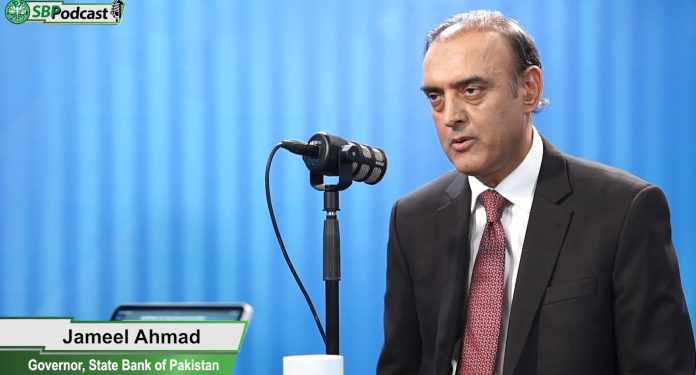In the Governor’s Annual Report for 2022-23, released belatedly as the first half of the current fiscal year concludes, State Bank of Pakistan (SBP) Governor Jameel Ahmed acknowledged that political uncertainty significantly impacted business and consumer sentiments, leading to a 0.2% contraction in real GDP in FY23.
The report revealed that the government’s fiscal and primary balance targets were substantially missed due to lower-than-planned tax revenues and a reduction in subsidies that fell below the budgeted figures.
Despite implementing fiscal policy measures in the latter half of FY23, the SBP governor noted the challenges faced.
Addressing these challenges, the SBP adopted a contractionary policy stance by raising the policy rate by a cumulative 825 basis points during FY23, in addition to the 675bps increase in FY22, according to the report.
The central bank implemented measures to contain domestic demand and imports amid pressures on the rupee and rising general prices.
While some of these measures had short-term economic implications, they were deemed necessary to meet external debt obligations and mitigate risks to macroeconomic stability over the medium term, stated the central bank chief.
The report highlighted that the average headline national Consumer Price Index inflation reached 29.2% in FY23, aligning with the upper bound of the SBP’s revised inflation projection range of 27–29% for the fiscal year.
The SBP governor attributed this to elevated global commodity prices, pressure on the external account, exchange rate depreciation, costlier fuel and food prices, increases in energy prices and indirect taxes, high inflationary expectations, and growth in wages.
Mr. Jameel emphasized the SBP’s commitment to preventing high inflation from becoming entrenched and anchoring inflation expectations. The central bank aims to achieve a medium-term inflation target of 5-7% by the end of FY25, with FY24 inflation expected to moderate to 20-22%.
This moderation is anticipated due to contractionary monetary policy, improvements in domestic supplies, softer non-energy global commodity prices, and the high base effect.
While acknowledging the central bank’s responsibility for price stability, the report underscored the importance of fiscal policy and effective administration in achieving and maintaining financial stability.
The outlook, however, is contingent on the absence of adverse shocks from geopolitical tensions, unforeseen climate events, and unfavorable movements in global commodity prices.




